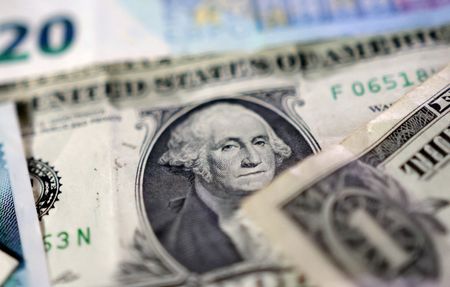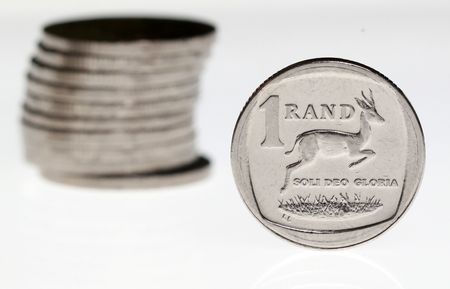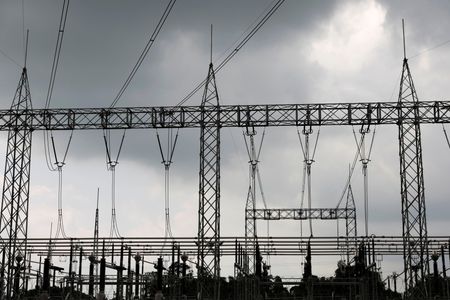By Robert Harvey
LONDON (Reuters) -Oil prices were stable on Thursday as investors weighed the potential impact of the upcoming U.S.-Russia summit on Ukraine on Russian crude flows, after U.S. President Donald Trump warned of “severe consequences” for Moscow if it does not agree to peace.
Brent crude futures were up 49 cents, or 0.75%, at $66.12 a barrel by 1303 GMT, while U.S. West Texas Intermediate crude futures rose 51 cents, or 0.81%, to $63.16.
Both contracts hit their lowest levels in two months on Wednesday after bearish supply guidance from the U.S. government and the International Energy Agency (IEA).
Trump on Wednesday threatened “severe consequences” if Russian President Vladimir Putin does not agree to peace in Ukraine. The U.S. president did not specify what the consequences could be, but he has warned of economic sanctions if the meeting in Alaska on Friday proves fruitless.
Trump has threatened to enact secondary tariffs on buyers of Russian crude, primarily China and India, if Russia continues its war in Ukraine.
“The uncertainty of U.S.-Russia peace talks continues to add a bullish risk premium given Russian oil buyers could face more economic pressure,” Rystad Energy said in a client note.
“How (the) Ukraine-Russia crisis resolves and Russia flows change could bring some unexpected surprises.”
However, some analysts remained sceptical that Trump would take action that could significantly disrupt oil supplies.
“Anything that causes oil prices to rise from policy such as secondary tariffs is almost an own goal against this administration, and the man from Moscow knows it,” PVM analyst John Evans said.
Expectations that the U.S. Federal Reserve will cut interest rates in September also propped up oil prices, as lower borrowing rates can spur economic growth and demand for oil.
Traders overwhelmingly believe a cut will happen next month after U.S. consumer prices increased at a moderate pace in July.
U.S. Treasury Secretary Scott Bessent said he thought an aggressive half-percentage-point cut was possible given recent weak employment numbers.
Oil prices were kept in check on Wednesday as crude inventories in the U.S. unexpectedly rose by 3 million barrels in the week ending August 8, according to the U.S. Energy Information Administration on Wednesday. [EIA/S]
(Reporting by Robert Harvey in London, Katya Golubkova in Tokyo and Siyi Liu in Singapore; Editing by Jan Harvey and Paul Simao)











